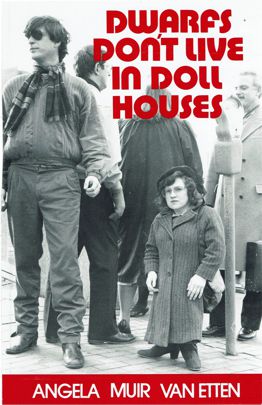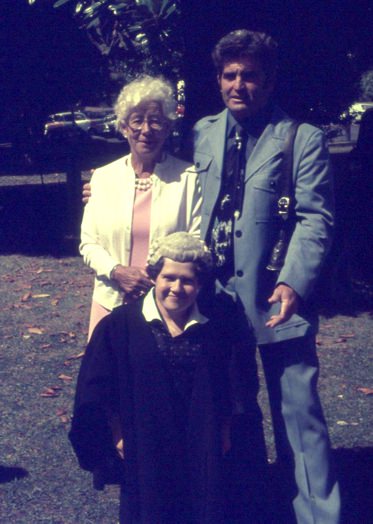
In observance of National Disability Employment Awareness Month this post presents highlights of my work experience as a barrister and solicitor in New Zealand excerpted from Chapter 3, At The Bar, in Dwarfs Don’t Live in Doll Houses, book I in my dwarfism trilogy, https://angelamuirvanetten.com/dwarfs-dont-live-in-doll-houses/
My first meeting with a client shattered stereotypes people had of how lawyers should look. In a crowded court foyer people watched me and whispered among themselves, “Is she really a lawyer?” In the office, parents’ faces brightened with embarrassment, when their curious child crawled under my desk and exclaimed in the midst of the meeting, “Mummy her feet don’t touch the floor.”
Want to subscribe to receive blog updates sign up today!
If anything, my ability to break free from the lawyer stereotype was helpful. My distinctive appearance made it easy for clients to identify and find me. Some people came into my office and before agreeing to make an appointment asked the secretary, “Is this the office of ‘the little lady lawyer’? and gestured with their hand at waist level to make absolutely sure their appointment was with me.
In court appearances, I needed to catch the Judge’s attention when my client’s case was called. In only my second court appearance, I nervously stood to indicate that I represented the defendant, but the Judge didn’t see me (my head was only level with the shoulders of other lawyers seated at the bar). I made the mistake of waiting for my client to make his way to the dock before speaking. The Judge erroneously concluded that my client was unrepresented and assigned my case to a public defense legal aid lawyer. I was mortified.
Later, people suggested that I should have stood on a chair, but I never stood on a chair to get attention before and I wasn’t about to begin in a courtroom. Instead I moved away from the lawyer’s table, stood in the aisle in the Judge’s line of sight, and shouted “May it please your Honor, I represent the defendant.” The Judge looked up quite startled, muttered an apology, and asked the clerk to call my client again.
I found that lawyers had just as many inhibitions in their dealings with me as other people. However, lawyers that discriminated were clearly disadvantaged. In discounting me as a serious opponent, I defeated their every unprepared argument.
Being a dwarf and a member of the “smallest minority” occasionally improved my effectiveness with clients. Many were themselves in minority groups being immigrants, alcoholics, solo parents or criminals. The fact that I belonged to a different minority was irrelevant. There was immediate empathy and recognition that we both had obstacles to face and overcome.
Often in my professional capacity, I advised people of the best approach to take in a situation. Many accepted my advice, because they realized I knew what it meant to face and overcome obstacles. I was living proof that you can make it even when the going is tough. After we talked, people were encouraged to attempt to put the pieces of their lives back together.
You may also want to read:
- Angela Muir Van Etten. “Lessons from my 40-year Law Career.” Blog post, October 10, 2022. https://angelamuirvanetten.com/lessons-from-my-40-year-law-career/
- Angela Muir Van Etten. “PASS ME YOUR SHOES: A Couple with Dwarfism Navigates Life’s Detours with Love and Faith.” Dwarfism Trilogy, Book II. https://angelamuirvanetten.com/pass-me-your-shoes/
- Angela Muir Van Etten. “ALWAYS AN ADVOCATE: Champions of Change for People with Dwarfism and Disabilities.” Dwarfism Trilogy, Book III. https://angelamuirvanetten.com/always-an-advocate/
- “5 Reasons to Hire People with Disabilities.” Disability Rights Florida Blog. https://disabilityrightsflorida.org/blog/entry/5_reasons_to_hire_people_with_disabilities

